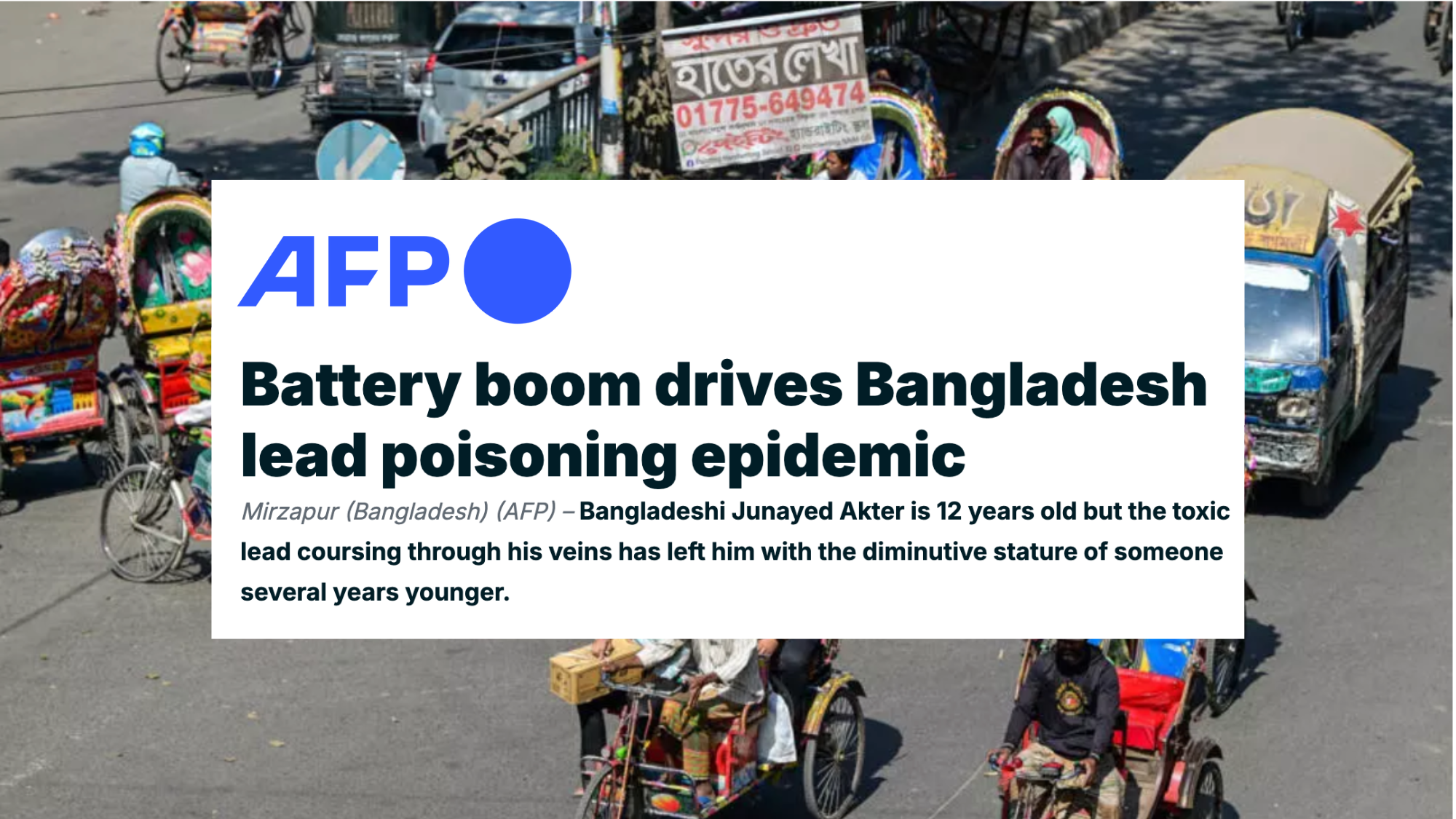A wave of international media coverage has brought necessary attention to the lead poisoning crisis in Bangladesh, where 36 million children are estimated to have elevated blood lead levels. A powerful report from Agence-France Presse (AFP) details how the unregulated recycling of used lead-acid batteries (ULABs) has driven widespread contamination. The AFP story was picked up by over 150 outlets around the world—including Barron’s, L’Express, The Manila Times, Daily Mail, and Yahoo—helping draw global attention to a problem that local residents and activists had been urgently sounding the alarm on for months.
“[Recyclers] break down old batteries, remove the lead and melt it down to make new ones,” Pure Earth Bangladesh Country Director Mitali Das told AFP. “They do all this in the open air,” she added. “The toxic fumes and acidic water produced during the operation pollute the air, soil and water.”

EZ bikes, mishuks, and e-rickshaws now serve as the primary transport for millions in Bangladesh, with 3-4 million vehicles catering to 112 million people daily. This informal electric three-wheeler sector remains unregulated, leading to the widespread use of low-quality lead-acid batteries, with 80% of used lead-acid battery factories operating informally, which pose environmental and health risks.
Pure Earth Bangladesh, YouthNet Global, and UNICEF Bangladesh have been advocating for a solution to this problem for years. Now, there has been a major step forward in enforcement. Over the past week, the Department of Environment took legal action against illegal lead-acid battery recycling in the Dhaka area, shutting down 16 factories and destroying 6 lead smelting furnaces.
Watch: How lead poisoning is harming millions of children in Bangladesh | AFP
“This is a powerful example of youth activism driving real change. Pure Earth has been dedicatedly working on raising awareness and building youth capacity to tackle lead pollution in Bangladesh, and YouthNet Global has been a key youth partner in this mission,” said Mitali Das. “We commend the Ministry of Environment, Forest, and Climate Change (MoEFCC) and Department of Environment for its bold regulatory actions against illegal, informal used lead acid battery factories to protect children and communities from lead pollution and ensure a safer environment.”
“The lead from battery factories is a severe threat to children’s health, destroying crops and biodiversity. With increased awareness and constant advocacy, we are gradually seeing positive results,” wrote Sohanur Rahman, Executive Coordinator of YouthNet Global, on LinkedIn.
Research estimates lead poisoning could cost Bangladesh 7% of its GDP. The efforts of Pure Earth Bangladesh and other civil society organizations have helped catalyze a growing movement to stop the lead poisoning epidemic. While more effective action and policy solutions are needed, advocates say this is an important step towards protecting children and communities in Bangladesh.






